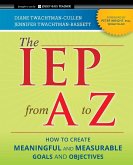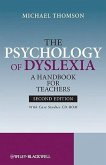As the use of the P scales is now a statutory requirement in England, this is the first book to take a comprehensive view of the assessment of children with special educational needs. This book charts the historical context for the development of the P scales from the Education Reform Act to the present day, and follows with a full introduction to the P scales: what they are, what they aim to do, and how they can be used to generate the most valuable assessment data. For the first time, the reliability and validity of assessments are discussed, and the extent to which the different scales are independent of one another is examined. With analysed data from over a quarter of a million pupils, the results presented are based on research that is not available elsewhere. Using extensive examples from the experiences of teachers and head teachers this unique book takes a practical look at the strengths of the scales as well as the issues that have been encountered in their use.
Hinweis: Dieser Artikel kann nur an eine deutsche Lieferadresse ausgeliefert werden.
Hinweis: Dieser Artikel kann nur an eine deutsche Lieferadresse ausgeliefert werden.








